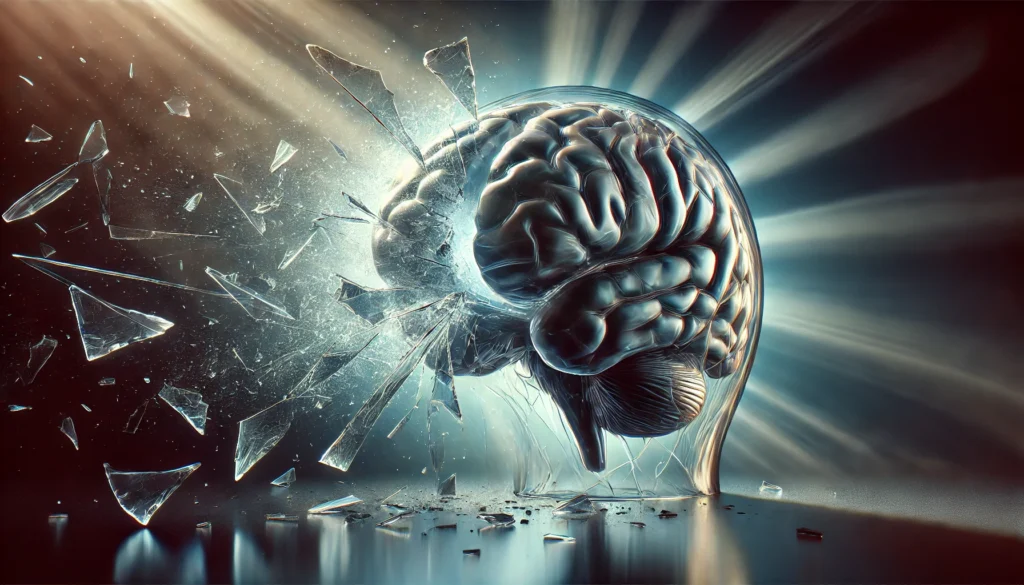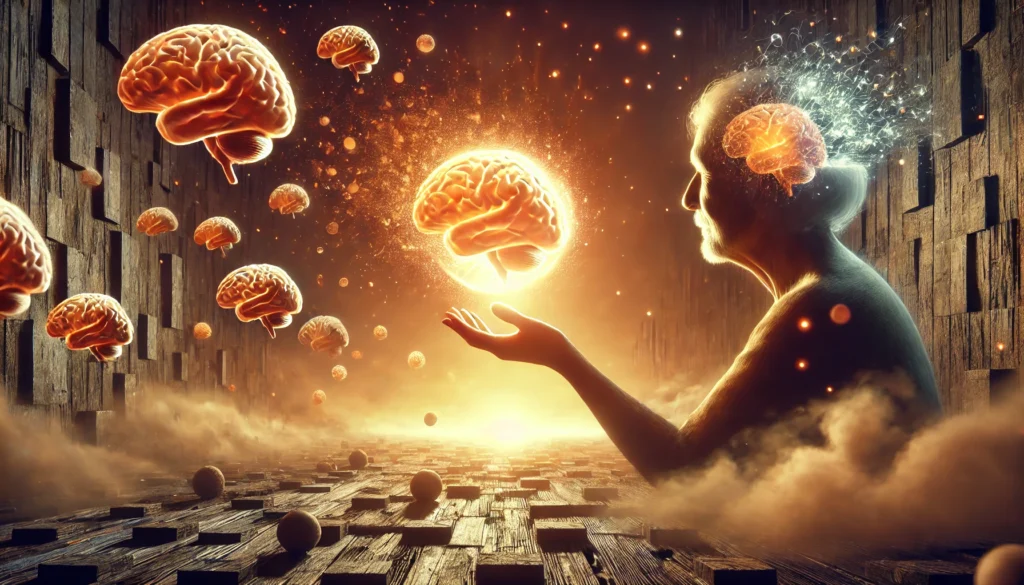Memory loss can be defined as an unusual forgetfulness that can range from forgetting recent events to not remembering older ones. While it is a common concern, especially among aging populations, not all memory loss is indicative of serious conditions like dementia. Understanding the nature of memory loss is the first step toward addressing it effectively.
You may also like: Understanding the Science Behind Lost Memory
Different Types of Memory Loss
Memory loss isn’t a one-size-fits-all issue; it varies in type and severity. Short-term memory loss affects recent events, making it difficult to recall conversations or activities that happened moments or days ago. Long-term memory loss, on the other hand, impacts the ability to remember events from the distant past. Additionally, transient global amnesia is a temporary loss of memory that can last from a few hours to a day and usually resolves itself without intervention.
Common Causes of Memory Loss
Memory loss can stem from a variety of causes, each with distinct implications. Neurological conditions such as Alzheimer’s disease are well-known culprits, yet other factors like brain injuries, infections, or even prolonged stress can lead to memory challenges. Lifestyle choices, including poor diet, lack of physical activity, and substance abuse, also significantly impact cognitive health. Understanding these causes is vital for addressing and potentially reversing memory issues.
Memory Loss Across Different Ages
Memory loss is not limited to older adults; it affects people across all age groups. In younger individuals, factors like stress, lack of sleep, or even excessive multitasking can lead to temporary memory lapses. In middle-aged adults, memory loss might be linked to hormonal changes or the onset of chronic health conditions. Recognizing that memory loss can occur at any age helps in early identification and intervention, preventing further cognitive decline.
Symptoms of Memory Loss
Memory loss symptoms can vary widely, depending on the underlying cause. Some common symptoms include:
- Difficulty remembering recent events or conversations
- Misplacing items frequently
- Trouble following directions or remembering appointments
- Repeatedly asking the same questions
- Difficulty recognizing familiar people or places
While these symptoms can be concerning, they do not automatically point to a degenerative condition. Temporary memory issues can arise from factors such as stress, sleep deprivation, and medication side effects.
Subtle Early Warning Signs
Early symptoms of memory loss can be subtle and often dismissed as simple forgetfulness. Difficulty in concentrating, struggling to find the right words, or taking longer to complete familiar tasks might signal the onset of memory issues. Paying attention to these early signs can prompt timely medical advice and potentially slow down further decline.
Emotional and Behavioral Changes
Memory loss is not just about forgetting facts; it often comes with emotional and behavioral changes. Individuals might experience mood swings, increased irritability, or withdrawal from social activities. These changes can be distressing for both the individual and their loved ones, highlighting the importance of comprehensive care and support.
When to Seek Medical Attention
It’s crucial to know when memory loss warrants medical evaluation. If symptoms progressively worsen or interfere with daily life, seeking professional guidance is essential. Regular check-ups can help differentiate between benign forgetfulness and more serious conditions, allowing for earlier intervention and management strategies.
Myths About Memory Loss
The fear of memory loss is often exacerbated by widespread myths and misconceptions. Let’s debunk some of the most common myths:
Myth 1: Memory Loss is Inevitable with Aging
Contrary to popular belief, memory loss is not an inevitable part of aging. While some cognitive decline can occur as we age, significant memory loss is often due to underlying medical conditions rather than age alone. Maintaining an active lifestyle, both mentally and physically, can help preserve cognitive function well into older age.
Maintaining Cognitive Health in Older Age
To combat the myth that memory loss is unavoidable in old age, it’s important to focus on cognitive health maintenance. Regular mental exercises, like reading or playing strategic games, can keep the mind sharp. Engaging in social activities and maintaining strong relationships also play a crucial role in preserving mental faculties as we age.
The Role of Genetics and Lifestyle
Genetics do play a role in cognitive decline, yet lifestyle choices hold significant power in influencing outcomes. Diet, physical activity, and mental engagement can either exacerbate or mitigate genetic predispositions. Understanding this dynamic empowers individuals to take control of their cognitive health, regardless of genetic background.
How Society Perpetuates the Myth
Cultural narratives often reinforce the inevitability of memory loss with age, portraying it as a natural, unavoidable process. Media representations and societal attitudes can discourage proactive health measures. By challenging these narratives, we can foster a more nuanced understanding of aging and cognitive health.
Myth 2: All Memory Loss is Dementia
While dementia is a common cause of memory problems, not all memory loss is linked to this condition. Factors such as vitamin deficiencies, thyroid issues, depression, and anxiety can also lead to temporary memory loss. A thorough medical evaluation is crucial to determine the cause and appropriate treatment.

Distinguishing Between Dementia and Other Causes
It’s crucial to differentiate between dementia and other causes of memory loss to avoid unnecessary panic. Dementia involves a set of symptoms that affect memory, thinking, and social abilities severely enough to interfere with daily life. Understanding the specific symptoms and seeking a professional diagnosis can prevent mislabeling every memory issue as dementia.
The Importance of Accurate Diagnosis
An accurate diagnosis is essential for effective treatment. Misdiagnosis can lead to inappropriate treatments and heightened anxiety. Comprehensive medical evaluations, including cognitive tests and lab work, can help pinpoint the exact cause of memory loss, enabling targeted interventions.
Non-Dementia Related Memory Issues
Many non-dementia factors can cause memory loss, including sleep disorders, chronic stress, and medication side effects. By addressing these issues, individuals can often see improvements in their memory function. This highlights the importance of a holistic approach to diagnosing and treating memory concerns.
Myth 3: There’s Nothing You Can Do About It
Many people believe that memory loss is beyond their control. However, lifestyle choices can significantly impact cognitive health. Engaging in regular exercise, maintaining a balanced diet, staying socially active, and keeping the brain challenged with new activities are all effective strategies to promote brain health.
Empowering Lifestyle Changes
Lifestyle changes can have a profound impact on memory retention and cognitive health. Incorporating activities such as yoga or tai chi can improve focus and reduce stress, which benefits memory. Additionally, mindfulness practices like meditation can enhance concentration and cognitive flexibility, aiding memory retention.
The Science of Neuroplasticity
Neuroplasticity, the brain’s ability to reorganize itself by forming new neural connections, plays a crucial role in memory preservation. Engaging in new learning experiences, such as taking up a new hobby or learning a language, stimulates neuroplasticity. This adaptability of the brain demonstrates that individuals have the power to influence their cognitive health positively.
Community Resources and Support
Communities offer numerous resources to support cognitive health, from memory workshops to support groups for individuals experiencing memory issues. Participating in these resources can provide valuable information and foster connections with others facing similar challenges, promoting a sense of empowerment and community.
Realities of Memory Loss
Understanding the realities of memory loss requires a comprehensive look at both the physiological and psychological aspects.
Physiological Causes
Various physiological factors can contribute to memory loss, including:
- Neurological disorders such as Alzheimer’s disease and other forms of dementia
- Brain injuries or tumors
- Stroke or cardiovascular issues affecting blood flow to the brain
- Chronic alcoholism or substance abuse
- Nutritional deficiencies, particularly in vitamin B12
The Role of Chronic Illnesses
Chronic illnesses like diabetes or hypertension can indirectly affect memory by impacting blood flow and nerve health. Effective management of these conditions can prevent further cognitive decline. Regular medical check-ups and adherence to treatment plans are vital in mitigating the effects of chronic illnesses on memory.

Impact of Medications on Memory
Certain medications can have side effects that influence memory. Sedatives, antihistamines, and some painkillers might impair memory or focus. Consulting healthcare providers about medication side effects and exploring alternatives can help minimize their impact on cognitive functions.
Brain Health and Lifestyle
Lifestyle factors such as diet and exercise directly affect brain health. Diets rich in antioxidants, like the Mediterranean diet, support brain function. Similarly, regular physical activity enhances blood flow to the brain, promoting better memory and cognitive performance.
Psychological Contributors
Psychological conditions can also play a role in memory issues. Stress, anxiety, and depression can interfere with the brain’s ability to process and recall information. Addressing these mental health concerns can often lead to improvements in memory function.
Stress Management Techniques
Stress is a significant contributor to memory issues, but it can be managed effectively. Techniques such as deep breathing exercises, progressive muscle relaxation, and guided imagery can reduce stress levels. Regular practice of these techniques can improve overall cognitive function and memory.
The Connection Between Mental Health and Memory
Mental health conditions like anxiety and depression can impair cognitive functions, including memory. Treating these conditions through therapy or medication can lead to noticeable improvements in memory. Acknowledging the interplay between mental health and memory is crucial for holistic treatment approaches.
The Role of Therapy and Counseling
Therapy and counseling can provide valuable tools for managing memory-related anxiety. Cognitive-behavioral therapy (CBT) and mindfulness-based therapy have shown effectiveness in improving cognitive function and reducing anxiety. These therapies help individuals develop coping strategies, improving both mental health and memory.
Addressing the Fear of Memory Loss
The fear of losing memory is not uncommon, but it can be managed with the right strategies.
Embracing a Healthy Lifestyle
Adopting a healthy lifestyle is a proactive approach to mitigating memory loss. This includes:
- Diet: Eating a diet rich in antioxidants, omega-3 fatty acids, and other brain-healthy nutrients can support cognitive function.
- Exercise: Regular physical activity improves blood flow to the brain and can reduce the risk of cognitive decline.
- Mental Stimulation: Engaging in activities that challenge the brain, such as puzzles, learning new skills, or playing musical instruments, can help maintain mental acuity.
The Benefits of a Balanced Diet
A balanced diet not only supports physical health but also enhances cognitive function. Foods like berries, nuts, and fish are known for their brain-boosting properties. Including these in your diet can improve memory and reduce the risk of cognitive decline.
Exercise as a Brain Booster
Exercise is a powerful tool for maintaining cognitive health. Activities like walking, swimming, and yoga enhance brain function by increasing blood flow and oxygen to the brain. Regular exercise can also boost mood, which positively affects memory.
Cultivating New Hobbies
Engaging in new hobbies stimulates the brain and fosters neuroplasticity. Learning to play an instrument or mastering a new language challenges the brain, keeping it active and improving memory. These activities also offer social benefits, reducing feelings of isolation and promoting overall well-being.
Seeking Professional Guidance
If memory loss symptoms are persistent or worsening, seeking professional guidance is essential. A healthcare provider can conduct evaluations to determine the cause and suggest appropriate interventions, which may include medication, therapy, or lifestyle modifications.
Importance of Early Intervention
Early intervention can significantly alter the course of memory-related conditions. Identifying issues early allows for more effective management and potential reversal of symptoms. Regular check-ups with healthcare providers ensure timely intervention and appropriate treatment plans.
The Role of Specialized Memory Clinics
Memory clinics offer comprehensive evaluations and tailored treatment plans for individuals experiencing memory loss. These clinics have multidisciplinary teams, including neurologists, psychologists, and dietitians, providing holistic care. Accessing specialized services can lead to better outcomes and improved quality of life.
Exploring Treatment Options
Treatment options for memory loss are diverse and depend on the underlying cause. They might include medication, cognitive therapy, or lifestyle interventions. Collaborating with healthcare providers to explore and tailor treatment plans ensures the best approach for individual needs.
Building a Support System
Creating a robust support system with family, friends, and healthcare professionals can provide emotional support and practical assistance, reducing the anxiety associated with memory loss.
The Power of Family Support
Family support plays a critical role in managing memory loss. Open communication and shared activities can strengthen bonds and provide emotional support. Families can also assist in creating a structured environment, helping individuals manage daily tasks more effectively.
Community Support Networks
Community support networks offer resources and connections for individuals dealing with memory loss. Support groups provide a platform to share experiences and learn from others facing similar challenges. These networks can reduce feelings of isolation and offer practical advice for managing memory issues.
Leveraging Technology for Support
Technology offers innovative solutions for supporting individuals with memory loss. Apps and devices can help with medication reminders, appointment scheduling, and memory exercises. These tools enhance independence and provide additional support, making daily life more manageable.
Future Implications and Current Trends
The field of brain health and memory research is rapidly evolving. Current trends focus on the development of new diagnostic tools and treatments to address memory loss and cognitive decline. Advancements in neuroimaging, biomarkers, and genetic testing hold promise for earlier detection and more personalized treatment strategies.
Innovative Diagnostic Tools
Emerging diagnostic tools are revolutionizing the way memory loss is detected and treated. Advanced neuroimaging techniques offer detailed insights into brain function, allowing for earlier and more accurate diagnoses. Additionally, biomarkers are being developed to identify cognitive decline before symptoms become apparent, paving the way for proactive interventions.
Personalized Treatment Approaches
Personalized medicine is becoming increasingly important in treating memory loss. Genetic testing and personalized health plans enable tailored treatment strategies that consider individual genetic and lifestyle factors. This approach maximizes effectiveness and minimizes side effects, leading to better patient outcomes.
The Role of Technology in Cognitive Health
Digital health technologies are transforming cognitive health management. Brain-training apps and wearable devices offer new ways to monitor and enhance cognitive function. These technologies provide real-time data and feedback, enabling individuals to track their progress and make informed decisions about their cognitive health.
Furthermore, the rise of digital health technologies, such as brain-training apps and wearable devices, offers new avenues for monitoring and enhancing cognitive health.
Conclusion
Memory loss is a multifaceted issue influenced by a blend of physiological and psychological factors. While myths can fuel unnecessary fear, understanding the realities and taking proactive measures can empower individuals to manage their cognitive health effectively. Embrace a balanced lifestyle, seek professional advice when necessary, and stay informed about the latest research to navigate the complexities of memory loss with confidence.
By dispelling myths and embracing scientifically-backed strategies, we can demystify memory loss and foster a healthier relationship with our cognitive well-being.
Taking Control of Your Cognitive Health
Empowerment comes from understanding and taking control of your cognitive health. By staying informed and proactive, individuals can actively participate in their health management. Education about memory loss and cognitive health equips people with the tools needed to make informed decisions and take preventative measures.
The Importance of Continuous Learning
Continuous learning and adaptation are crucial in managing memory health. Staying up-to-date with the latest research and treatment options ensures that individuals can benefit from new discoveries and advancements. This commitment to learning fosters resilience and adaptability, essential for navigating cognitive health challenges.

Building a Supportive Community
Creating a supportive community around memory health can drive change and reduce stigma. Engaging in open conversations, participating in community groups, and advocating for resources can foster a more informed and empathetic society. Together, we can create an environment that supports cognitive health and well-being for all.
Further Reading:
Beyond Memory Loss: How to Handle the Other Symptoms of Alzheimer’s
Fear and Forgetfulness: Are Your Anxiety and Working Memory Linked?
Important Note: The information contained in this article is for general informational purposes only, and should not be construed as health or medical advice, nor is it intended to diagnose, prevent, treat, or cure any disease or health condition. Before embarking on any diet, fitness regimen, or program of nutritional supplementation, it is advisable to consult your healthcare professional in order to determine its safety and probable efficacy in terms of your individual state of health.
Regarding Nutritional Supplements Or Other Non-Prescription Health Products: If any nutritional supplements or other non-prescription health products are mentioned in the foregoing article, any claims or statements made about them have not been evaluated by the U.S. Food and Drug Administration, and such nutritional supplements or other health products are not intended to diagnose, treat, cure, or prevent any disease.


